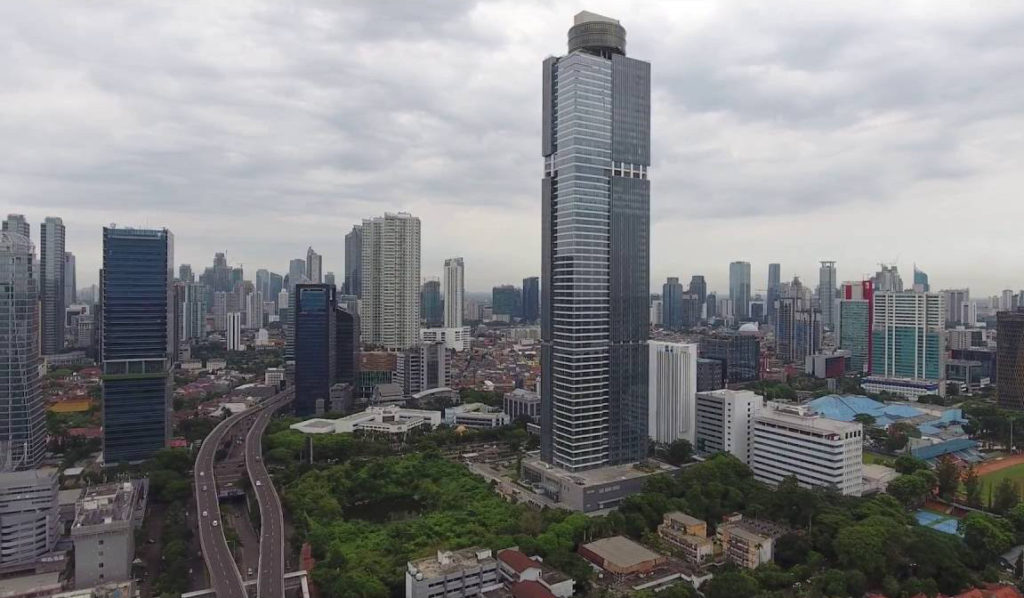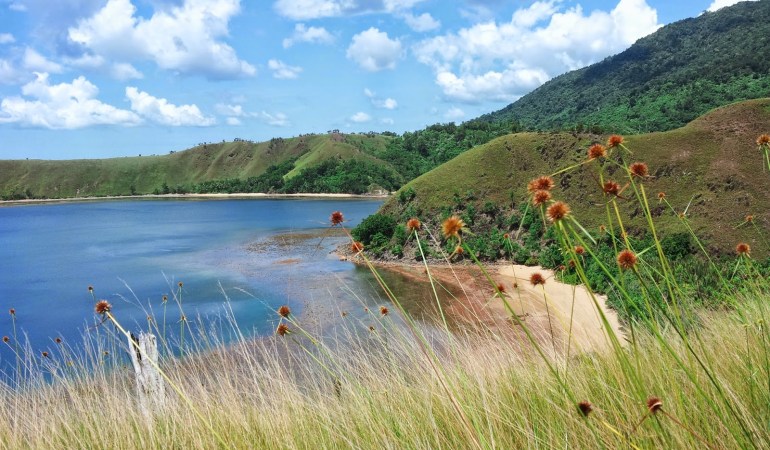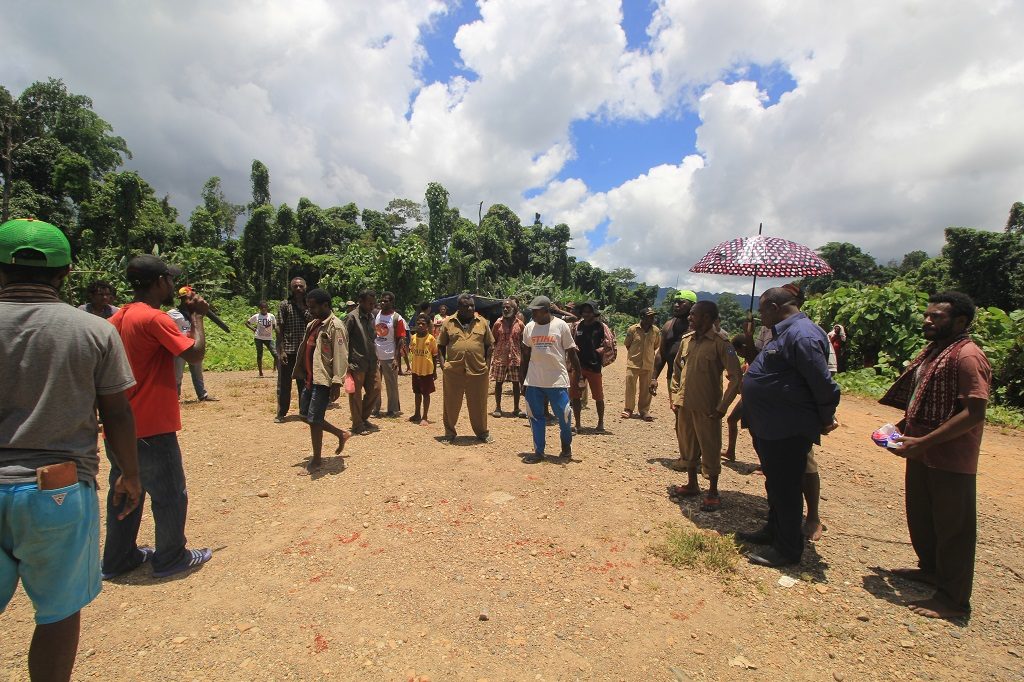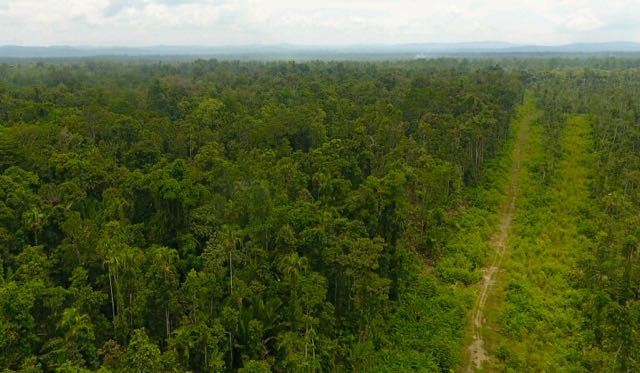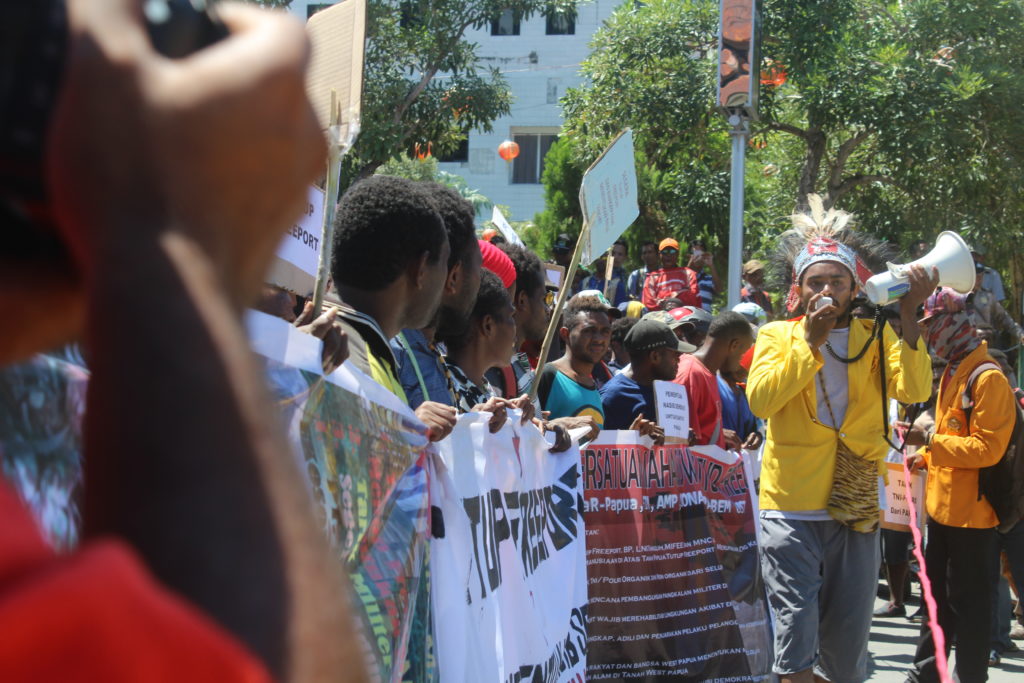On 9th August 2017, a member of the Indonesian armed forces shot dead Theo Kamtar in Poumako Port, Timika. This incident was part of a dispute where indigenous fisherfolk felt their livelihood threatened by better equipped migrants from other islands in Indonesia, who were dominating the catch. Elements of the state appear to have sided with the migrants, and eventually crushed their resistance with lethal violence.
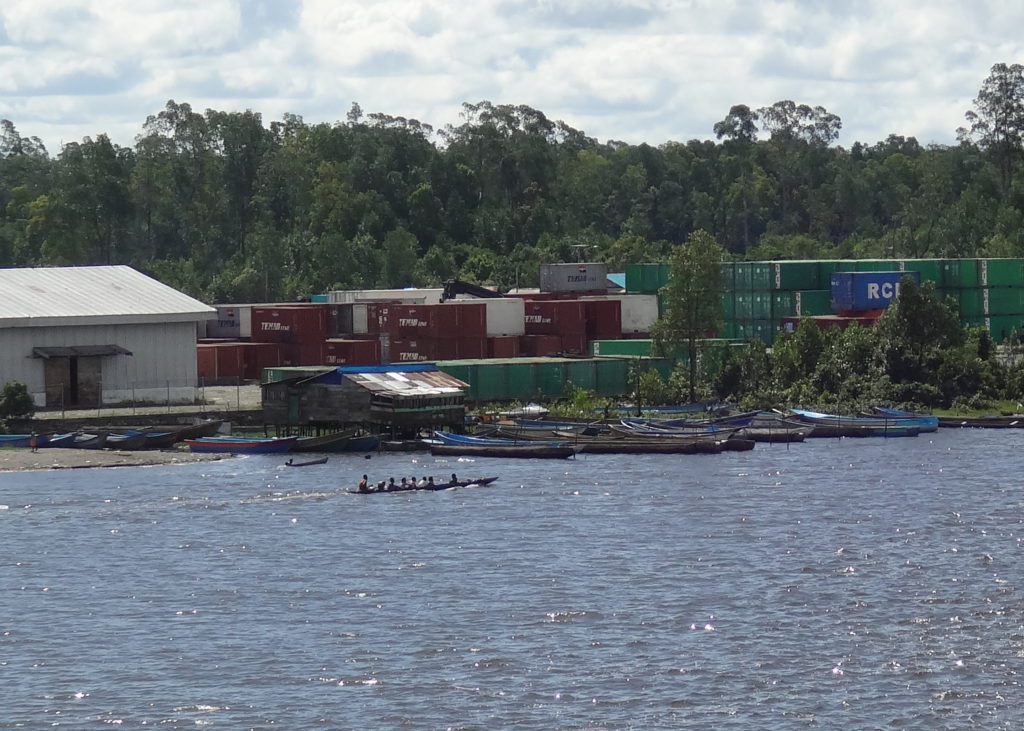
Here is the report of the investigation into the incident carried out by the Justice and Peace Secretariat of the Timika Catholic Diocese.
The situation before the incident.
In recent months a dispute has emerged between traditional indigenous fisherfolk who hold customary rights, and semi-modern fishermen, that come from outside Papua (migrant fishermen), who normally use large nets or seines to trawl for fish. Because they use these large nets, often hundreds of metres long, the indgenous fisherfolk’s catch is starting to decrease dramatically, especially when the semi-modern fishermen are working close to indigenous fishing areas.
In an attempt to find a way out of this situation, the indigenous fisherfolk took the initiative to arrange a meeting. In the meeting they proposed two options: either the migrant fishermen would not be allowed to catch fish in the waters near the river mouth, or the indigenous fisherfolk and migrant fishermen would share out the roles – the indigenous people’s job would be to catch fish in the river and out to sea while the migrants would sell them on. Aside from these two options, a third choice was discussed, that the migrant fishermen could still go out and look for fish, if the area they used was sufficiently far out to sea.
The issue was officially discussed three times in the last three months. The first meeting took place in mid-June at the Poumako port in Mimika. The second discussion in July was at the East Mimika sub-district office and the third on 1st August in the Mimika Marine and Fisheries Agency district office, in the Bupati’s office building. All stakeholders attended all three meetings.
However, on the 7th August, the Head of the Mimika Marine and Fisheries Agency, Leentje A.A. Siwabessy, held a closed meeting in the agency office meeting room, which solely discussed the migrants’ fishing operations.
According to the Meeting Report (document reference 253/435/2017) issued by the Marine and Fisheries Agency (which was later claimed to be the outcome of this meeting), seven village heads from East Mimika sub-district were present (from Hiripau, Tipuka, Poumako, Kaugapu, Mware, Pigapu and Wania villages) and relevant officials, including Captain Rohi King (Operational Section Head from the Timika Naval Base), Ipto Barnabas (Water Police Unit Head from Mimika Police HQ), Kopda Usman (village military representative for Poumako village), Rachel Latuheru (Fisheries and fish farming section head in Mimika Regency), Wesly Simanungkali (Conservation and Monitoring section head) and Lucky. J. Wokas (Section chief or coastal marine and small islands of Mimika Regency). This time local fisherfolk were not invited to the meeting, nor were the Kamoro People’s Institution (Lemasko) or other stakeholders which had been present in the previous three meetings. Local fisherfolk and LEMASKO were not made aware of this meeting or its outcomes.
However, on the evening of the 8th August 2017, one of the migrant fishermen came to the house of the head of neighbourhood association (RT) 9 in Pomako to say that the migrant fisherfolk had been given a permit to catch fish and they were going out to sea.
Then on 9th August 2017, a shooting incident took place in front of the Harbour Police office (KP3 Laut) which left one person dead and two civilians and one soldier wounded.
Chronology
Wednesday, 9th August 2017
03.00-05.00 am
People around Poumako port heard the sound of a fishing boat’s engine. The sound could easily be recognised as coming from the boat of one of the semi-modern fisherman who had been prohibited from going out to sea while the local government was still facilitating an agreement between themselves and the indigenous fisherfolk.
06.00-07.00 am
The indigenous fisherfolk went to the berths used by the migrant fisherfolk. Their suspicions proved correct. They could see for themselves that around 20 motor boats belonging to migrant fisherfolk had gone to sea to catch fish.
07.00 -09.00
The indigenous fisherfolk stated to coordinate amongst themselves and decided to go out and find the migrant fishermen and warn them not to catch fish in the area. However, because the passenger ship KM Tatamailau was scheduled to arrive at around 10 am, and the majority of adult men also worked as baggage porters in the port, they agreed to go and look for the migrant fishermen after KM Tatamailau had left.
However, on the other side of the port, Andreas Kaokapaitiparo (head of Hiripau village) and Jhon Johanis Yakiwur (head of Poumako village) came to ask the head of neighbourhood association 9 Poumako to discuss the issue of the permit issued to migrant fishermen at the Poumako police post. They were accompanied by two on-duty police officers, and several indigenous fisherfolk were also present. The document, which was said to be a permit, was read out so that everybody could hear.
Notwithstanding this, the indigenous fisherfolk were unsatisfied and protested. Their problem was that indigenous fisherfolk, community leaders and LEMASKO had not been invited to speak, find agreement and take the decision together. The issue triggered a quarrel which the police were able to mediate. Once they had left the police station, the neighbourhood association head suggested to the two village heads that they go home so as not to invite trouble. They both left using public transport.
11.30 am
After KM Tatamailau left Poumako port, all the younger indigenous fisherfolk started making towards the river mouth. They used about ten longboats, with an estimated four-to-six people in each boat. They went towards the river mouth which they guessed would be the place the migrant fishermen were looking for a catch. This movement of young people made some of their parents quite worried, including a mother who felt she had to go out to sea to advise the young people about the dangers of trying to settle such issues at sea, especially since the boats they were using were not particularly suitable, given the inclement weather. After hearing this advice, the young fisherfolk called off their plan and chose to wait for the migrant fishermen at the port.
13.00 pm
Several of the longboats that had left to chase the migrant fishing boats started to come back. As they came back, they pulled up alongside the migrant fishermen’s boats. Some of the young people climbed aboard the migrants’ boats. There were around two young indigenous people on each boat.
Around 14.30-15.00 pm
Gradually the migrant fisherfolk’s boats came back to the port, together with their indigenous escorts. Not long afterwards, the head of the migrant fishermen telephoned the head of neighbourhood association 9 Poumako to say that indigenous fisherfolk had confiscated and were holding migrants’ boats. Wanting to ensure the safety of the confiscated equipment, two of the migrant fishermens leaders, Sami Werinusi (a member of the Mimika Regency Guards (Satpol PP) and co-ordinator of the migrant fisherfolk) and Budi (a businessman from boat company Camar Papua), accompanied by some other people, went looking for the neighbourhood association head. Once they had met him, he was asked to discuss the issue at the harbour police office.
At that time, the migrant fishermen had already filled the police office, and even the road leading to it. For this reason, the majority of indigenous fisherfolk chose to remain outside the police post premises, mainly around the long row of kiosks across the street.
For unknown reasons, Sami Werinusi got angry and left the police post without excusing himself. He approached one of the indigenous fisherfolk, snatched the bottle he was holding and struck him on the head with it. Upon seeing this, the indigenous fisherfolk got angry and tensions rose towards Sami Werinusi and the group of migrant fishermen. Push and shove was inevitable. At that moment three shots were heard. Theodorus Camtar, who had been standing near the flagpole, was the target of one of these bullets which left him dying. Meanwhile two other young men, Rudi Safan and Gerardus Namipok were shot in the arm and hand respectively. The shots came from Chief Brigadier Yusuf Salasar (a member of the intelligence unit of Military Command Post 174/ATN). He opened fire whilst concealed behind the outside corner of the police post building.
Seeing this, the indigenous fisherfolk were angry. They chased Sami Werinusi who took refuge in the police station. Inside the station, they tried to get hold of Sami Werinusi and also went looking around the police station for the person who had fired the shots. In their efforts to do this, facilities both inside and outside the police post were destroyed. At the same time, second corporal Andi (a member of the intelligence unit of Mimika District Military Command 1710) was stabbed. Once the situation was under control, the police evacuated Theo’s body and the other victims to the Mimika General Regional Hospital.
16.00 pm
Accompanied by police and family members, Theo’s body and one of the wounded arrived at the Mimika general hospital. Theo’s body was held for several hours to carry out an autopsy, and then brought home by his family to Asmat village, Poumako.
Thursday 10 August 2017
11.00 am
Augustina (a female Papuan community leader) lead the prayers in the deceased’s home. The body was then blessed by the parish priest of St Emanuel Mapurujaya parish, Pastor Yonas Purnama OFM, and taken to the final resting place. At around 12.40 pm, Pastor Yonas Purnama led the burial ceremony in the Kaugapu public ceremony.
Situation after the incident.
The general situation for indigenous people in Poumako is slowly getting back to normal. Everybody has started to go about their daily activities as before, apart from the family of the deceased, Theodorus Camtar. Despite this, an atmosphere of mourning is still the dominant mood.
However the indigenous people are also being haunted by a feeling of anxiety and threat. The cause is a number of attempts to install fear they have received by telephone from different sources, including members of the Water Police Unit of Mimika Police HQ, members of the intelligence unit of Mimika District Military Command and the military police unit. In these telephone conversations they are asked about the whereabouts of fishing boats or equipment which is supposedly missing. They have been ordered to find and return them, if they don’t want to face new problems and further dealings with authority.
It is important to be aware that the principal issue in this bloody incident has not yet been deal with. All parties are urged to show restraint and let the police or competent institutions carry out investigations. The fact that a person was killed should not be obscured by spreading trivial stories concerning manufactured goods which can be replaced. Apart from the issue of the shooting, there is also a need to reveal which actors are involved in the fishing business around Poumako, which has already claimed victims.
This investigative report was compiled by a team from the Timika Diocese Justice and Peace Secretariat
Source: Suara Papua http://suarapapua.com/2017/08/31/ini-laporan-investigasi-skp-keuskupan-timika-dalam-kasus-poumako-berdarah/
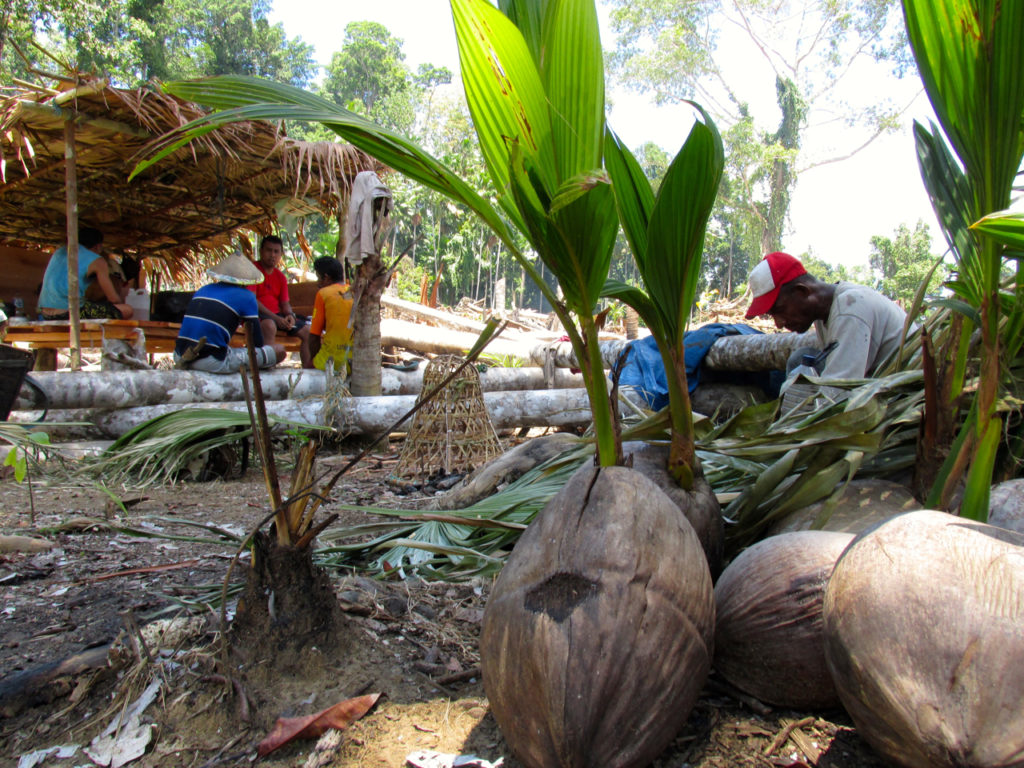 Sanusi’s eyes were full of tears on Wednesday (6/9/2017) has he told of the sad state of affairs in his village, Gane Dalam over the last three years. Rhinoceros beetles have been attacking their coconut farms, and the damage to the plants has spoiled the harvest.
Sanusi’s eyes were full of tears on Wednesday (6/9/2017) has he told of the sad state of affairs in his village, Gane Dalam over the last three years. Rhinoceros beetles have been attacking their coconut farms, and the damage to the plants has spoiled the harvest.
